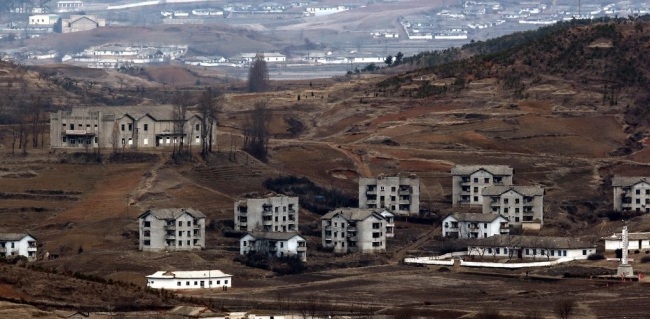The South Korean government on Thursday announced it will proceed with the plan to send $8 million in humanitarian aid via UN agencies amid the international community’s efforts to maximize economic pressure on North Korea.
This is set to mark the Moon Jae-in administration’s first state-backed aid to the reclusive state.
 |
(Yonhap) |
The Unification Ministry here has approved the aid plan, reconfirming the current administration’s basic stance that humanitarian assistance should continue regardless of political considerations, it said in a statement.
The time frame and the specifics of the project will be decided in consideration of the overall situation including the tone of inter-Korean relations. The ministry said it aims to launch the plan by the end of the year. “We have plans to carry out the plan at least by the end of the year,” a ministry official said Thursday.
“Previously, such support (towards North Korea) were launched within months after the decision was made,” he said.
The ministry plans to stick with the initial plan of $8 million, in which about $4.5 million is to go to the United Nations Food Program while the rest would be managed by UNICEF for its vaccine and other health care programs. Both projects aim to alleviate poverty and sickness among North Korean children and mothers.
The government said the aid will be delivered in the form of actual medical and food aid, thus ruling out the possibility of it being misused for other illegal purposes. It also vowed to closely work with the UN agencies in monitoring of the supplies.
The decision was drawn out of Thursday’s interagency meeting presided over by the Unification Minister Cho Myoung-gyon, with officials from both the Foreign Ministry and Strategy and Finance Ministry in attendance. Cho also noted the severity of the current situation surrounding the Korean peninsula on North Korea’s ongoing provocations and the efforts of global leaders being displayed at the UN General Assembly in New York.
“Separation of sanctions against the North Korean regime and humanitarian assistance towards its citizens is a universal value shared among the international society,” said Cho during the meeting.
Despite Cho’s claims, there are voices both in and out of South Korea expressing concern and skepticism towards Seoul’s decision.
US Senator Ben Cardin recently told the VOA that he has doubts about whether the aid will go directly to North Korean citizens.
“I don’t know the manner which humanitarian aid is delivered, if it can deliver directly to people, it doesn’t go through the government, so it is diverted for corrupt purposes or to support the regime,” said Cardin.
US Senator Cory Gardner, the chairman of US Senate’s East Asia subcommittee said that North Korean citizens must be aware of the catalyst behind their current situation.
“I hope people in North Korea will realize the reason they need humanitarian aid is because they have a dictator leader who is willing to fund a nuclear program, an illicit nuclear program, and doing so starving its own people. The reason why 200,000 people are in political concentration camps is because (Kim Jong-un) is a ruthless person and needs to be stopped,” Gardner said.
Japan’s Chief Cabinet Secretary Yoshihide Suga had claimed last week that it is not the time to provide aid, but to increase pressure.
Meanwhile, Karin Hulshof, regional director for East Asia and the Pacific at UNICEF released a statement on Thursday stressing the urgency of resolving the hunger issues and other “real challenges” North Korean children face daily.
“The children of (North Korea) have long been invisible to much of the world, but the challenges they face are all too real -- and the need to reach them is urgent,” Hulshof said in a statement.
By Jung Min-kyung (
mkjung@heraldcorp.com)








